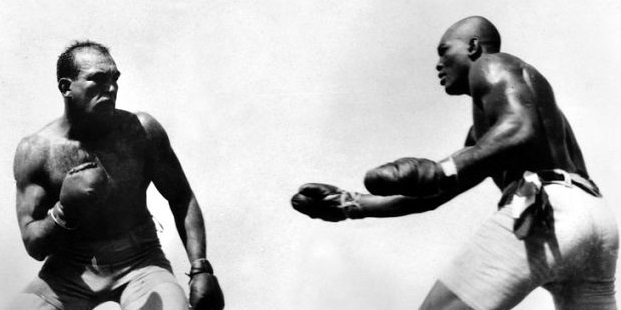[ad_1]
In 1910, Jack Johnson and James J. Jeffries clashed in Reno, Nevada to contest the world heavyweight crown in what was then billed as “The Struggle of the Century.” At stake was way over a mere boxing championship, because the black Johnson, having taken the belt from Canadian Tommy Burns in 1908, was thought by the white public in America to be wholly unfit to carry the title. Jeffries, an undefeated former champion and probably the most reputable “Nice White Hope,” had been repeatedly summoned to return to boxing so he might defeat the brash Johnson and reinstate the white man’s rightful place atop the athletic hierarchy. His quest would show fruitless, however the legendary Johnson vs Jeffries match, with its buildup and aftermath, was a real sensation and social phenomenon, an occasion which galvanized the general public whereas reflecting the hateful ideologies of the age.
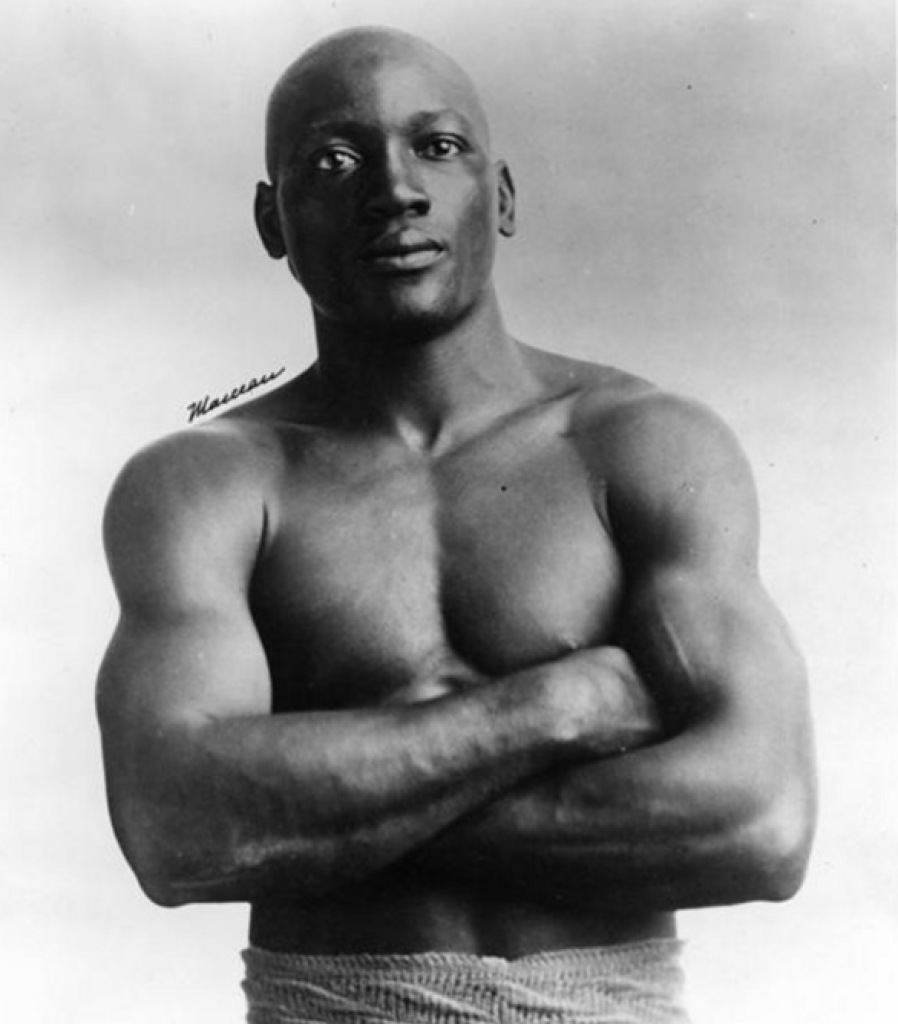
Whereas one acknowledges the plain racism of a society which regarded white individuals as inherently superior, for a gift day boxing fan to really perceive the local weather of worry and hatred attending this racial tinderbox of a struggle is inherently tough. In acknowledging this disconnect, it’s nonetheless exceptional to ponder Jack Johnson’s dedication to defeat Jeffries regardless of the hazard concerned. Violence, in spite of everything, was the nasty appendage to an occasion whose ramifications went far past boxing. Contemplate the grandiloquence of Christian Socialist Reverdy Ransom, who acknowledged that “the best marathon race of the ages is about to start between the white race and the darkest races of mankind. What Jack Johnson seeks to do to Jeffries within the roped enviornment would be the ambition of negroes in each area of human endeavor.”
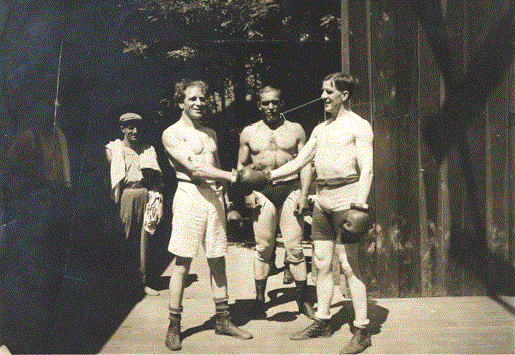
As a result of Jeffries had retired undefeated, many felt he remained the true champion. Nearly 35-years-old, and having not stepped via the ropes in six years, he now weighed shut to a few hundred kilos. Regardless of this, Jeffries was besieged by media and followers to go away his California alfalfa farm and take the title away from its black holder. Initially hesitant, the fighter they known as “The Boilermaker” was persuaded to come back again by Tex Rickard, who assured the winner two thirds of a colossal $101,000 purse. There have been, after all, different social pressures encouraging Jeffries’ return, which the previous champion articulated unambiguously: “That portion of the white race that has been me to defend its athletic supremacy could really feel assured that I’m match to do my perfect.”
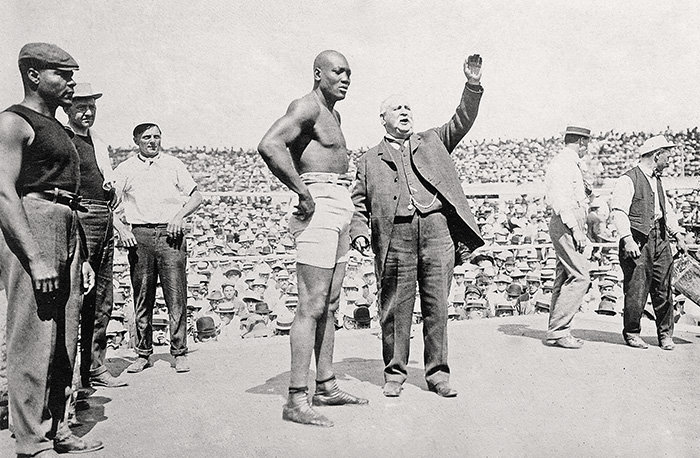
The Manichean racial narrative seized on by the press—during which Johnson and Jeffries had been pitted in opposition to each other as representatives of incongruous civilizations—ensured a beforehand unseen diploma of curiosity in a boxing match. Over 5 hundred media members traveled to Reno to report on each camps, main famed creator Jack London to proclaim that “there has by no means been something prefer it within the historical past of the ring.” Johnson projected an air of supreme confidence, typically spending his afternoons joking with the various arms in his camp. Jeffries, whose coaching was bolstered by visits from boxing dignitaries John L. Sullivan, Joe Choynski and ‘Gentleman’ Jim Corbett, was equally confident, at the very least publicly. Personal considerations about his inactivity and weight reduction troubled him, significantly when information arrived concerning Johnson and his wonderful bodily situation.
No matter this, few dared to wager on the champion. Jim Corbett believed Jeffries would win, as did George Little, Johnson’s former supervisor. On the Reno betting parlour operated by Corbett’s brother, Tom, there was not a single individual prepared to position a wager on a Jack Johnson victory. Playing with their hearts, few, if any, members of the white public had been prepared to position their monetary religion in a black man’s declare to athletic supremacy.
Johnson vs Jeffries was held on Independence Day, a merciless irony given the repressive needs of these in attendance. Johnson entered the ring first as per his superstitious customized, showing cool and outwardly assured as he acknowledged his buddies at ringside. An enormous roar from the gang signaled Jeffries’ entrance, his fellow Caucasians elated to see their champion returning to revive collective racial status. Again at his authentic boxing weight, the svelte Jeffries wore a glance of full seriousness, and he refused to shake Johnson’s hand earlier than the opening bell.
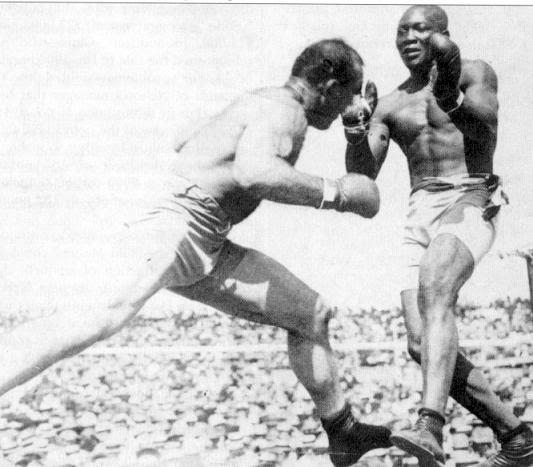
Jeffries started the struggle aggressively, however Johnson’s good, unsolvable protection thwarted the previous champion’s swarming fashion. Each time Jeffries tried to brawl, Johnson tied him up and pinned his arms, and when granted a gap, Johnson stung Jeffries with fast, exact blows. Despairing on the apparent distinction in potential between the 2 combatants, an ungentlemanly Corbett taunted Johnson with a sequence of vicious racial insults, however the champion smiled again at Corbett after which returned his personal barbs, whereas on the identical time coolly retaining Jeffries at bay.
Because the rounds handed, Jeffries’ face turned more and more marked, and it was apparent he was not a championship-caliber boxer, or at the very least not of a typical to problem Johnson. Impressively recreation, however too fatigued to be efficient, Jeffries might need met his finish far sooner had Johnson not feared the ugly penalties of an early knockout. The tiring Jeffries might mount no aggressive push, and in spherical fifteen Johnson scored the primary ever knockdown in opposition to Jeffries, solely to do it once more, after which once more.
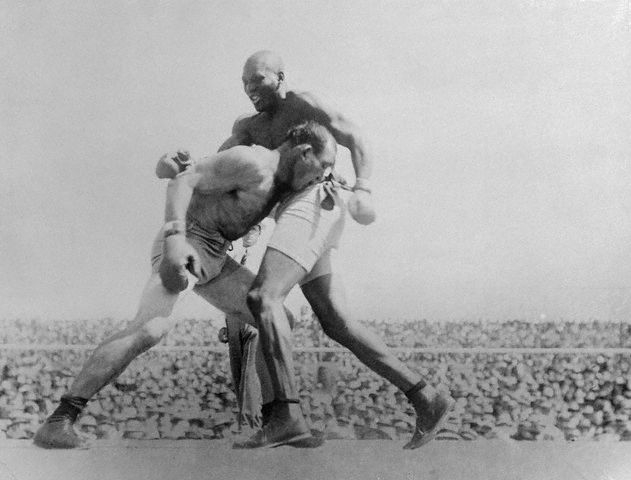
Amid cries of “Don’t let the nigger knock him out!” Jeffries’ nook stopped the struggle to stop additional injury, each bodily and figurative. White followers rushed the ring, however Johnson’s crew shaped a protecting barrier across the champion. Nobody questioned the result or the truth that Johnson had confirmed himself the higher man. Tellingly, Jeffries himself famously admitted he might by no means have overwhelmed Johnson, even in his prime. “I might by no means have whipped Johnson at my greatest,” he stated. “I couldn’t have hit him. No, I couldn’t have reached him in a thousand years.”
Instantly after, race riots broke out throughout America. The lifeless had been overwhelmingly black, and the violence precipitated calls to ban boxing in the US. It could stand as the one worst day for race riots in American historical past till the unrest and violence of the late 1960’s. Johnson vs Jeffries, like later culturally vital matches similar to Louis vs Schmeling II, Ali vs Frazier I and Holmes vs Cooney, proved to be a revealing social barometer because it attracted and laid naked America’s most harmful prejudices. Given the following, racially-charged calamities of the a long time to come back, this was one “Struggle of the Century” actually deserving of its moniker.
— Eliott McCormick
[ad_2]
Source link

